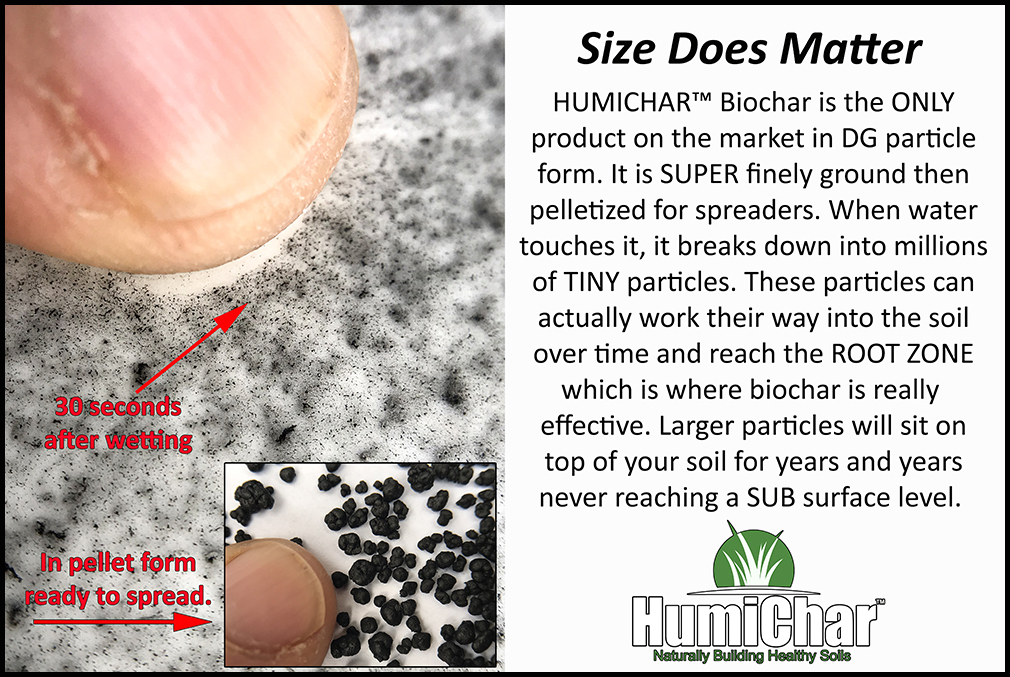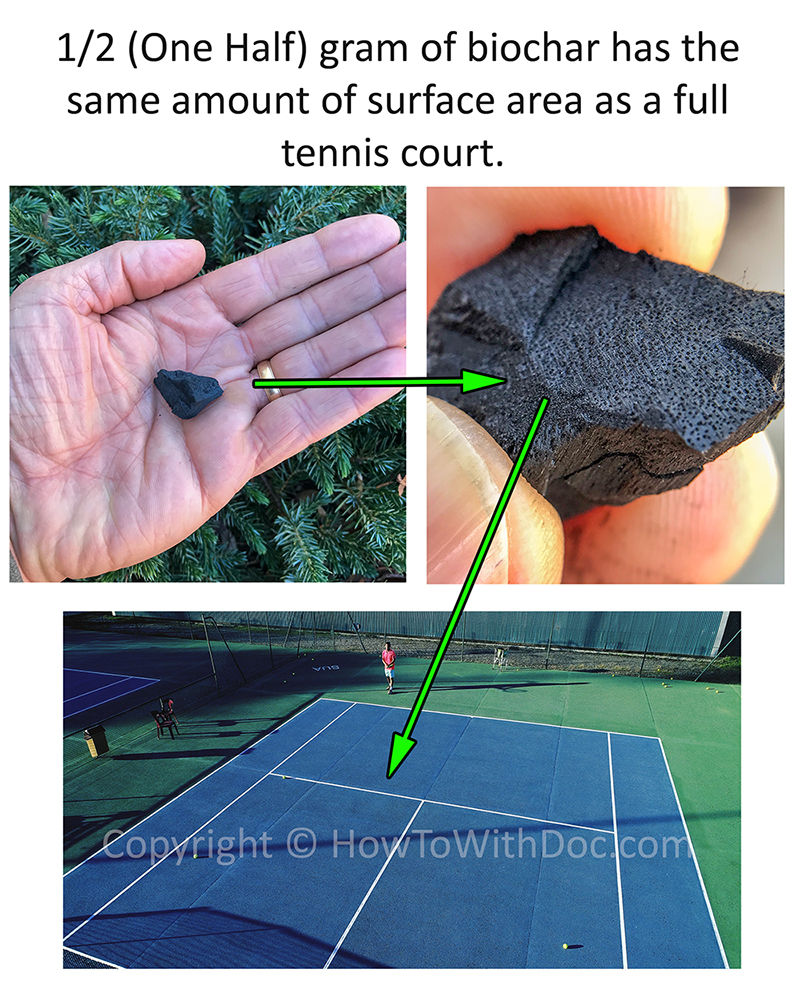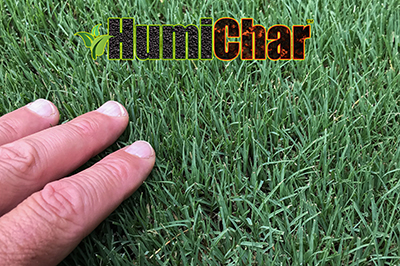Biochar in Doc’s simple terms…
“Biochar is usually wood or other organic matter that is burned very slowly in low oxygen environment producing CARBON RICH CHARCOAL rather than ash. It is very high in carbon. There is very little NUTRITIONAL VALUE to biochar, rather it is the HOST for good things to happen. You can think of it like a nutrient / microbe magnet or like a coral reef.
Making biochar involves heating carbon-rich materials, such as wood to very high temperatures. This ‘activation’ process strips the charcoal of previously absorbed molecules and frees up bonding sites again. This process also reduces the size of the pores in the charcoal and makes more holes in each molecule, therefore, increasing its overall surface area. Think of it as a STORAGE AREA OR HIDING PLACE for GOOD things.
Again, when you add biochar you are NOT adding nutrients. You are adding an ECO SYSTEM product that helps your soil develop and hold nutrients and healthy microbes. This process does take some time, but biochar can last for 100’s of years in the soil and over the years you are creating great soil that requires less fertilizer.”
The BIOCHAR / HUMICHAR Learning Video
This is the FULL 30 minute learning video that will COMPLETELY teach you about biochar and Humichar.
Best Biochar Learning Video
Doc suggests EVERYONE should watch this video and learn. Trust us… it’s amazing information.
Size does matter on lawns…

Not all BIOCHAR is the same…
We only use HIGH quality biochar made from hardwoods and it is made at temps at over 800 degrees. Why is this temp important?
Rice’s award-winning biochar research group examined the hydrologic properties of biochar produced at various temperatures from three kinds of feedstock — tree leaves, corn stalks and wood chips. For all feedstocks, the researchers found that biochar produced at temperatures above 450 degrees Celsius (842 degrees Fahrenheit) had optimal properties for improving soil drainage and storing carbon.

More Biochar Info…
Biochar (basically a specially produced charcoal) is a by-product of pyrolysis gas production whereby waste wood, manures, forestry residues or waste is pyrolysed, or roasted at high temperature to drive off volatile gases, which can be used to run engines, boil water and generate electricity.
The idea of using the charcoal by-product to improve soils has its origins in the study of “terra preta” soils of the Amazon basin. These human-modified soils are made by centuries of adding charcoal to the native rain forest soils. The Amazonians found that this improved the fertility of the otherwise very poor natural rain forest soils. Because charcoal lasts so long in soil, these soils can still be mapped and found today, even though long abandoned.
Biochar is recognized as offering a number of benefits for soil health. Many benefits are related to the extremely porous nature of biochar.  This structure is found to be very effective at retaining both water and water-soluble nutrients. When pre-charged with these beneficial organisms biochar becomes an extremely effective soil amendment promoting good soil and, in turn, plant health.
This structure is found to be very effective at retaining both water and water-soluble nutrients. When pre-charged with these beneficial organisms biochar becomes an extremely effective soil amendment promoting good soil and, in turn, plant health.
Biochar has also been shown to reduce leaching of E-coli through sandy soils depending on application rate, feedstock, pyrolysis temperature, soil moisture content, soil texture, and surface properties of the bacteria.
For plants that require high potash and elevated pH,biochar can be used as a soil amendment to improve yield.
Biochar can improve water quality, reduce soil emissions of greenhouse gases, reduce nutrient leaching, reduce soil acidity, and reduce irrigation and fertilizer requirements. Biochar was also found under certain circumstances to induce plant systemic responses to foliar fungal diseases and to improve plant responses to diseases caused by soilborne pathogens.
The various impacts of biochar can be dependent on the properties of the biochar, as well as the amount applied, and there is still a lack of knowledge about the important mechanisms and properties.  Biochar impact may depend on regional conditions including soil type, soil condition (depleted or healthy), temperature, and humidity. Modest additions of biochar to soil reduce nitrous oxide emissions by up to 80% and eliminate methane emissions, which are both more potent greenhouse gases than CO
Biochar impact may depend on regional conditions including soil type, soil condition (depleted or healthy), temperature, and humidity. Modest additions of biochar to soil reduce nitrous oxide emissions by up to 80% and eliminate methane emissions, which are both more potent greenhouse gases than CO

